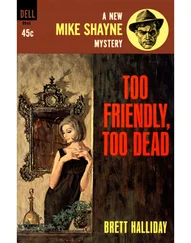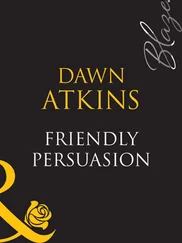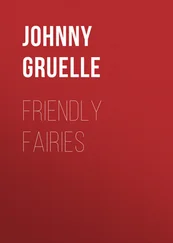"Are you sick?' she mutters. "A different father?"
"Why not? I'm over seventy now; I don't have many years left. I did my duty, I filled my quota of worry and suffering. At Eyali's bar mitzvah, after he finished reading the Haftorah, the rabbi told me to declare in a clear voice: 'Blessed is He who has released me from punishment for this one's sins,' and I repeated those repellent words against my will, as if the devil had made me do it. But now, after almost twenty years, I realize that bar mitzvah devil wasn't altogether stupid. Now I bow my head and say simply, 'Blessed is he who released me.' If my son wants to be a 'wanted' man again and not the one wanting — by all means, but he should be so kind as to find himself a different father."
"Yirmi," she says, tense and shaken, "what on earth are you talking about?"
"Do you want to poison the meal?"
"The truth liberates, it doesn't poison."
Yirmiyahu regards his sister-in-law with fondness. "If that's the case, if you also came here for the truth, then I'll give you a few new details about that 'friendly fire' that your Amotz saddled me with."
"Leave Amotz alone," she protests impatiently, "he was only trying to console you."
He puts a hand on her arm.
"I don't doubt it, and I have no complaints against him. Amotz is a practical man, after my own heart. But his 'friendly fire' made me crazy in the beginning, because it turned into a project. At any price, by any possible means, I wanted to know who this friend was who unleashed the fire, what his name was, what he looked like, where he came from, who his parents were, his teachers, everything."
"But why was that important to you? What did you want to do to him? What in the end could you do to him? Shuli never told me you were caught up in this."
"Because I never said a word to Shuli. She put an end to our sex life, and I put an end to total honesty."
"And Amotz knew about it?"
"Not Amotz or anyone else."
The black chef places before them two dishes of the meat and vegetable stew.
"This is breakfast or lunch?"
"Both. After you've contributed a hundred dollars in honor of the tears of a wandering elephant, you deserve a full meal. And don't be put off by the distinctive taste of the meat; it was cooked on a hot fire. And let's not ruin the meal with talk that I know will only upset you."
"Keep talking, I hate eating in silence. I'm listening. I never thought that identifying the soldier who accidentally shot Eyali was of any concern to you. After all, they said he was not to blame."
"Of course he wasn't. The fault was entirely Eyal's. But still I wanted a connection with the one who killed him."
"What kind of connection?"
"A connection."
"And in the end you identified the young man?"
"No, in the end I gave up and stopped trying."
9.
WITH A TREMBLING hand the elderly Ya'ari tries to sketch for his son the inner structure of the hydraulic oil piston that raises and lowers the little elevator, and Hilario runs back and forth between rooms, fetching pages torn from his arithmetic notebook for further attempts. As the father recollects it, the two parts of the piston are screwed together internally, not joined by an exterior flange, whose bolts would rust over the years. That was how he guaranteed sturdiness and reliability for the long term, and ensured that the hydraulic oil would not leak out of unforeseen openings. But not even high-grade steel, the kind produced in Czechoslovakia before World War II, can resist forever the wear and tear of time. Therefore, it will be necessary to locate the joint, separate the two parts, remove the defective bearings and replace them with new ones.
"The sketch isn't worth the effort, Abba," his son says, "I'm sure the inside threads have melted together by now and we won't be able to take the thing apart. The only way is to take the whole mechanism out of the wall and try to install something else that'll work on the same principle."
"But there's no chance we can get ready-made parts that'll be right for my little elevator. We'll have to make a new piston from scratch, just like the old one."
"Turning a new one is a different story. I have no idea who can do it, not to mention the cost."
"Why? I'll ask Gottlieb to make it in his factory. He owes me a lot, and he'll do it for me."
"Don't kid yourself that he'll work for you. And I'm not at all sure that he's capable of turning you a new piston. Everything in his factory is automatic and programmed, and the lathes work according to standard models. Gone are the days of workshops that do custom-made private elevators on the whim of single women."
"He'll make it for me," says the father, ignoring his son's cynical remark. "I know he can do it."
Hilario stands at the ready beside the wheelchair, poised to run into his room and tear out another page for the old man. Francisco sits nearby, listening intently. In the kitchen, amid the steamy aromas of lunch, Kinzie trills a song.
"And we haven't yet discussed the wailing electrical system," Ya'ari continues in a quarrelsome tone, "which is a separate story. I'll be damned if I can figure out where you hid it, Abba, and where it gets its current."
The old man smiles. Why be damned? Where it's hidden he doesn't remember, but because this is not spirit but matter, in the end it will be found. And the elevator gets its power directly from the electric company.
"The electric company?"
Of course. Devorah Bennett's apartment, like the other old apartments in the building, never had three-phase power, and his father was wary of overloading the system, so he found a way to circumvent the apartment's wiring and supply the elevator directly from the electric company. Meaning that all these years the little girl has had a free ride, as if she were a veteran member of the company's workers' committee.
"I see this woman aroused criminal urges in you," Ya'ari jokes. "But if that's the situation, you can forget about me. I'm not going near any wailing and shaking electrical system connected to some unidentified illegitimate source."
"Don't exaggerate… you told me that Gottlieb has some woman around his plant who's an expert on technical noises, so we'll take her to Jerusalem and together we'll locate the cat and silence it."
"What's this 'we'll take' and 'we'll locate'?"
"I'll go up to Jerusalem, too. Before I die I want to see, one more time, the elevator that goes straight from her bedroom. Did you tell her I'm now in a wheelchair?"
"I gave her a hint."
"Why?"
"So she wouldn't bother you too much. But don't tell me this is a secret you're ashamed of."
"Not any more. But to tell the truth, when I first got sick I was very embarrassed, and because of that I broke off contact. Because you should know that after Mother died, I tried to give myself more freedom, to bring more substance to what I already felt about her. Amotz, to tell you the truth, when I built her the elevator in her bedroom, I really fell in love with that woman. Not one phase but all three. I almost couldn't breathe when I was near her. Afterward I tried to cool this love down. But when Mother died and I was alone, we had a lovely affair, not too intense, age-appropriate. And had it not been for all the psychiatric patients in and out of there all day, I would even have gone to live with her. But then the tremors got worse and also moved to my knees…"
Ya'ari face burns red as he hears his father's confession of love.
The Filipino woman comes out of the kitchen, small and flushed. A pixie in colorful silks, asking the boss in English if he's ready to eat.
"Maybe in a little while," he answers in his own creaky English. "But the chicken schnitzel is right from the pan, just as you like it."
Читать дальше












